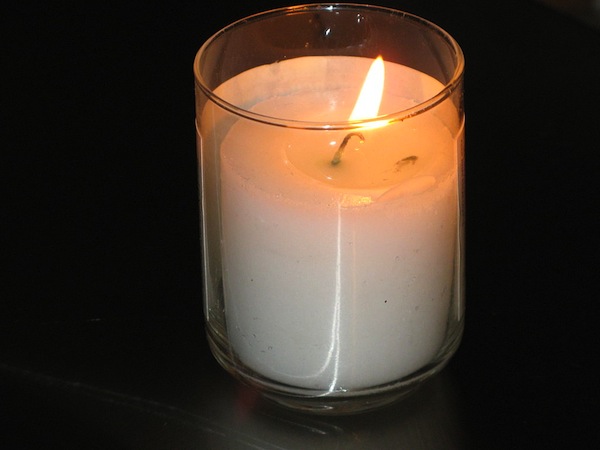Was it really 17 years ago that my sweet, beloved father, Sidney Civkin, passed away? The long row of empty Yahrzeit candles in my closet confirms it. The date was March 13, 2003. Dad was 86 years old. It was indisputably the saddest day of my life.
If you have a good one, you’ll know that there is something unique about a father-daughter relationship. There are secrets and bonds that no mother-daughter relationship can come close to. Don’t ask me why, I just know it’s true.
It’s no secret that my sister Linda and I spent more time with our father in the last three years of his life than we had up until that point – and he was always a very present, involved father. He’d been suffering with end-stage renal failure and was on dialysis for those last few years. And we were his primary caregivers, since our mother was not well by that point.
Our dad often said that, ironically, those were the best years of his life – precisely because he got to spend so much time with Linda and me. He loved to just hang out with us. Whether we were sharing a meal, having a coffee at Granville Island, or sitting in the den shmoozing, he was all in. Flattering to think that he loved our company above everything else.
There was no one who didn’t have an opinion about our father. Some knew him as argumentative, loud and assertive. Others remember him as compassionate, caring and erudite. I knew him as all of those things, and loved him more for it. He was my secret-keeper, my biggest fan, my adoring, supportive father. If anyone has ever loved me unconditionally, it was him.
Dad adored his work (he was an ear, nose and throat surgeon); devoured books; loved to golf; loved to cook; and took great enjoyment in playing bridge with his buddies. But, most of all, he loved his family. And he had a quirky, magnificent sense of humour. He was playful, outspoken and hardworking. And he adored off-colour jokes.
Dad was born in Winnipeg (“the Old Country”) in 1916, served in the Canadian Army as a medical officer, then moved to Vancouver in 1949, determined to escape the brutal prairie winters. He set up his medical practice in New Westminster and, even though we lived in Vancouver, he continued to make the commute for the next 37-odd years. He loved the small-town feel of New Westminster, his working-class patients and his colleagues. He’d found his place as a well-respected doctor who spent his life helping others.
I’ll never forget the night Dad passed on. My life shattered, not just momentarily, but for a few years. I was 47 years old, single, and I’d just lost my best friend. I know that sounds odd, but our relationship was everything to me. I grieved as though I’d invented the concept. I felt like no one’s heart could be broken quite like mine. It wasn’t just an emotional pain. It was intensely physical for me. In the blink of an eye (it wasn’t really, because he had been sick for three years, but death never seems inevitable, even in the very second before it happens), my world splintered into a billion pieces. I was inconsolable.
My grief consumed me, at home and at work. The mere thought of my father set me to tears. It was like a floodgate had not merely opened, but exploded. Seventeen years later, I still think of my father regularly, but the tears are no longer a daily occurrence. Yet, I still can’t believe he’s no longer here with us, physically. He certainly is in spirit. They say that, when the soul leaves the body, it can still connect with loved ones, except it’s in a spiritual way. And we have lots of that. Naturally, I miss the physicality of giving my dad a hug and kiss. I miss looking at his smiling face. But we still connect mightily and often. I can feel his presence in my dreams and, when I see or hear particular things, I just know it’s my dad sending me a message. I know he’s always checking in on me, looking out for how I’m doing.
Grief is a funny thing. It ebbs and flows. It intrudes at the most inopportune times, and announces its presence with a deafening blast. It creeps into your consciousness when you least expect it, and always takes its sweet time getting comfortable. Grief never gets an invitation – it always just crashes the party. Grief never gets easier; it just gets different. The edges blur, the points soften, but the tangible sense of loss never goes away. Seventeen years later, at age 64, I still feel like an orphan.
There is much truth to the adage by Maya Angelou: “People will forget what you said, people will forget what you did, but people will never forget how you made them feel.” My father always made me feel loved and supported. His pride in me was a source of great comfort. Naturally, there were times when he said or did things that angered or upset me, but they never eclipsed his unconditional love for me. I have always been sure of that.
If I had to distil my dad’s legacy into a nutshell, it would be this: be kind to people and help them when you can. Give graciously of your heart, and always try to do the right thing. It’s a tall order. But I’m up for the challenge. Thank you, Dad, for everything.
Shelley Civkin is a happily retired librarian and communications officer. For 17 years, she wrote a weekly book review column for the Richmond Review. She’s currently a freelance writer and volunteer, including with Chabad Richmond.

